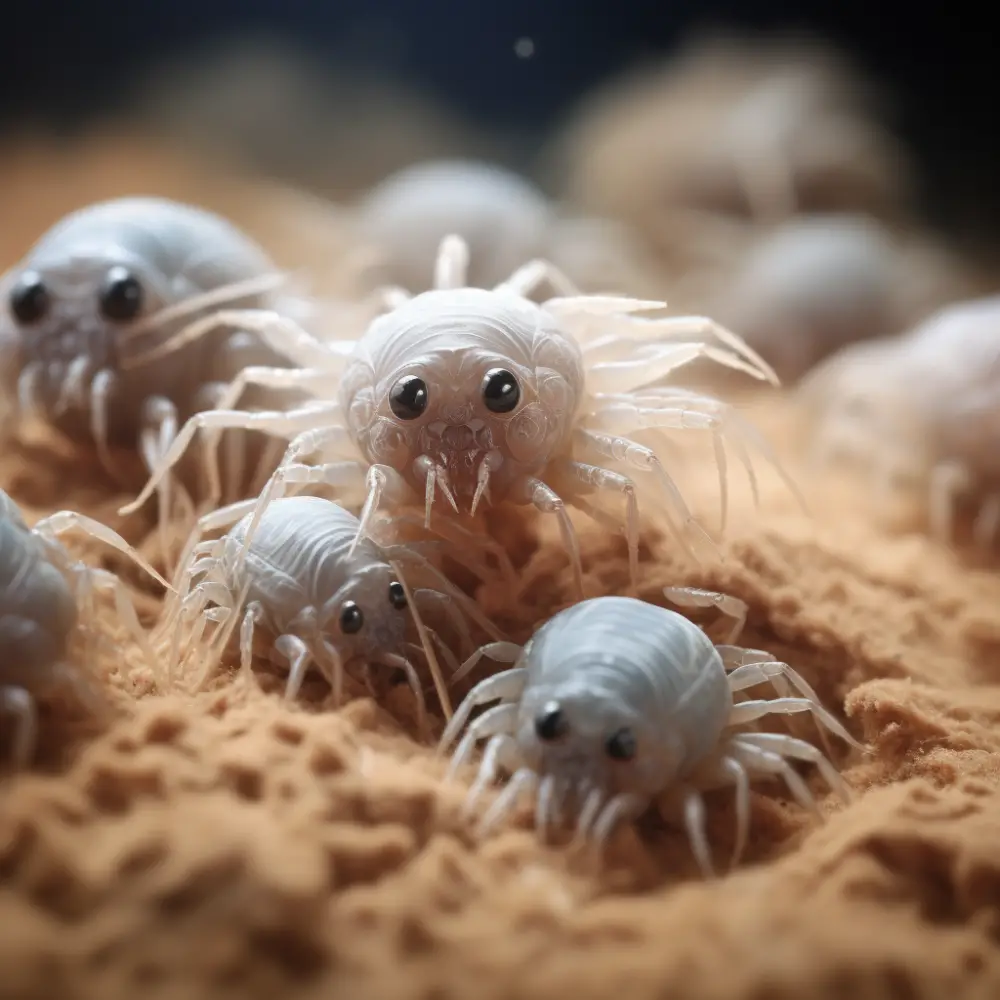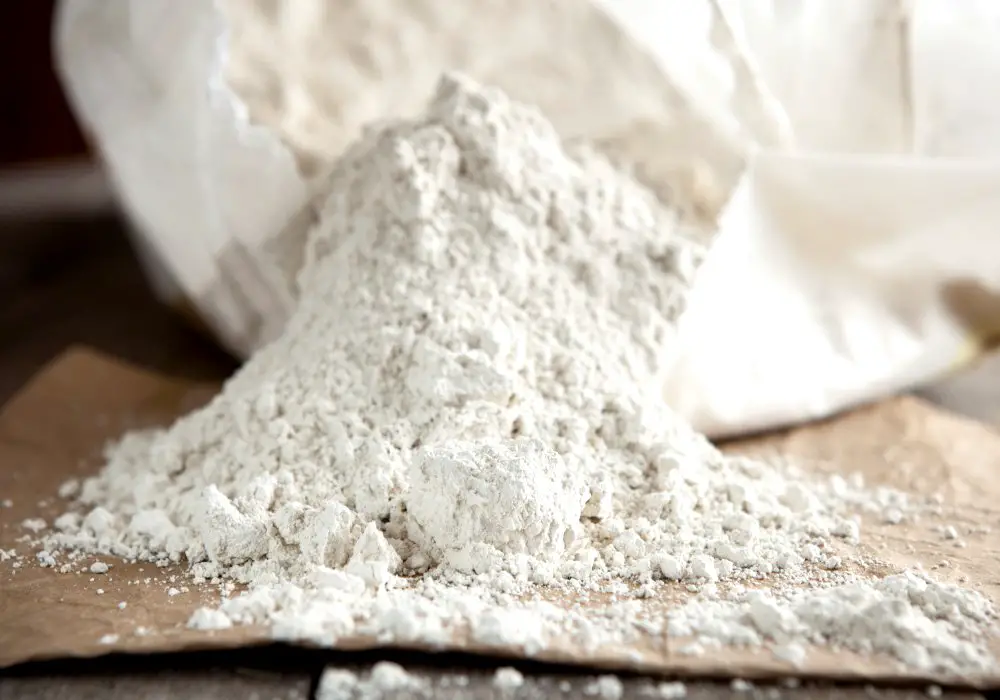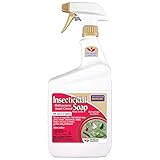Vinegar is a common household item that has been used for centuries for various purposes, including cleaning and disinfecting.
Some people believe that vinegar can kill mites because it is acidic and has antimicrobial properties. They suggest that applying vinegar to surfaces or fabrics that are infested with mites can help to eliminate them.
However, others argue that vinegar is not effective against mites and may even cause harm to certain surfaces or materials. Which is correct?
Quick Answer:
White vinegar and apple cider vinegar are often cited as home remedies for mite issues. Vinegar is not scientifically proven to kill mites and is not an EPA-registered pesticide.
Understanding Mites
Mites are tiny arthropods that belong to the class Arachnida, which also includes spiders and ticks. They are found in a wide range of habitats, from soil to water, and can be parasitic or free-living.
Some species of mites are beneficial, while others are harmful to humans and pets.
Pet owners should be aware of mites as they can cause various symptoms and allergic reactions in both humans and animals. Mites can cause skin irritation, itching, hair loss, and scabbing in pets.
These symptoms can be caused by different types of mites, such as ear mites, demodex mites, and sarcoptic mites.
Mite infestations can also cause scabies, a contagious skin condition caused by the sarcoptic mite. Scabies can cause intense itching and a rash that often appears between fingers, on the wrists, elbows, and knees. It is important to seek medical attention if you suspect scabies, as it can be easily spread to others.
Allergies to mites are common and can cause allergic symptoms such as sneezing, runny nose, watery eyes, and asthma. These allergies are caused by proteins found in the feces and body parts of mites.
Vinegar and Its Properties
Vinegar is a common household item that is used for various purposes, including cooking, cleaning, and preserving food. It is a liquid that is produced by the fermentation of ethanol by acetic acid bacteria.
The acetic acid content in vinegar is what gives it its acidic properties, which makes it an effective cleaning agent.
There are different types of vinegar available, including white vinegar and apple cider vinegar. White vinegar is made from grain alcohol and has a higher acetic acid content than apple cider vinegar, which is made from apples.
The acetic acid content in vinegar can range from 4% to 8%.
Vinegar has been used for centuries for its medicinal properties. It has been shown to have antimicrobial properties, which means that it can kill certain types of bacteria and fungi. However, there is limited research on whether vinegar can kill mites.
Acetic acid, which is the main component of vinegar, has been shown to denature proteins. Mites have a protein-based exoskeleton, which means that vinegar may be able to break down their exoskeleton and kill them. However, it is important to note that vinegar may not be effective in killing all types of mites.
How Vinegar Affects Mites

Vinegar is a commonly used household item that has been touted as a natural remedy for a variety of ailments. One such use is as a treatment for dust mites. But does vinegar really kill mites?
There is some evidence to suggest that vinegar can be effective in killing dust mites. Vinegar is an acidic substance, and it is believed that the acidity of vinegar can help to break down the proteins in dust mite waste, which is a common allergen.
This can help to reduce the symptoms of allergies caused by dust mites.
However, while vinegar may be effective in reducing the symptoms of dust mite allergies, it is unlikely to kill dust mites themselves. Dust mites are microscopic creatures that live in household dust, and they are incredibly resilient.
While vinegar may be able to break down the proteins in dust mite waste, it is unlikely to be strong enough to kill the mites themselves.
In addition, it is important to note that vinegar is not a cure for dust mite allergies. While it may be able to reduce the symptoms of allergies, it is not a substitute for medical treatment.
If you are experiencing symptoms of dust mite allergies, it is important to seek medical advice from a qualified healthcare professional.
Using Vinegar Against Mites
Vinegar has been used as a natural remedy for many household cleaning purposes, including the eradication of mites.
While there is limited scientific research on the effectiveness of vinegar against mites, many people have reported success with this method.
To use vinegar against mites, it is recommended to dilute it with water in a spray bottle. A solution of equal parts vinegar and water is a common ratio used. This solution can be sprayed onto surfaces where mites may be present, such as carpets, mattresses, pillows, and box springs.
When using vinegar against mites, it is important to note that it may not completely eliminate them. It is best used as a supplement to other methods of cleaning and washing.
For example, washing bedding and clothing in hot water can help to kill mites and their eggs.
Vinegar can also be used to clean surfaces that may harbor mites, such as books and other items. However, it is important to spot test a small area first to ensure that the vinegar does not cause any damage.
Other Natural Mite Control Methods

While vinegar may be an effective way to kill mites, there are also other natural methods that can be used. Here are some other options to consider:
Essential Oils
Essential oils such as eucalyptus and clove oil have been shown to have antifungal and antibacterial properties, which can help eliminate mites. These oils can be diluted with water and sprayed on affected areas.
Baking Soda
Baking soda can be used to absorb moisture and eliminate odors, which can help deter mites. Sprinkle baking soda on carpets, bedding, and other areas where mites may be present, and then vacuum it up after a few hours.
Diatomaceous Earth
Diatomaceous earth is a natural substance that can be used to kill mites. It works by dehydrating the mites, causing them to die.
Sprinkle diatomaceous earth on carpets, bedding, and other areas where mites may be present, and then vacuum it up after a few hours.
Dish Soap
Dish soap can be used to kill mites on surfaces. Mix a few drops of dish soap with water and spray the solution on the affected areas. This will help eliminate mites and their eggs.
Other Methods
Other natural methods that may be effective at controlling mites include using organic pesticides, using hot water to wash bedding and clothing, and using peppermint or garlic to repel mites.
It is important to note that while these methods may be effective, they should be used in conjunction with other methods to ensure the best results.
Commercial Mite Control Methods
There are a variety of commercial mite control methods available to homeowners.
Professional Pest Control
Professional pest control companies can be hired to treat a home for mites. These companies will typically use a variety of methods, including chemical pesticides and heat treatments, to eliminate mites from the home.
While effective, these treatments can be expensive and may require the homeowner to vacate the home for a period of time.
Vacuum Cleaners
Vacuuming is an effective way to remove mites and their eggs from carpets, upholstery, and other surfaces in the home.
High-efficiency particulate air (HEPA) filters can be used to ensure that mites and other allergens are not released back into the air during the vacuuming process.
Undiluted Vinegar
Undiluted vinegar has antimicrobial and antibacterial properties that can kill mites on contact. However, it may not be effective at eliminating mites that are deep within fabrics or other surfaces in the home.
Bleach
Bleach can be used to kill mites on hard surfaces such as floors, countertops, and walls. However, it is not recommended for use on fabrics or other soft surfaces, as it can damage these materials.
Insecticidal Soap
Insecticidal soap is a natural, non-toxic product that can be used to kill mites on plants and other surfaces in the home. It is safe to use around children and pets, and is effective at eliminating mites without harming the environment.
- Captain Jack’s Insecticidal Super Soap controls species of adelgid, ant, aphid, borer, caterpillar, spider mite, cricket, chinch bug, weevil, fly, thrip, and more
- Designed for outdoor residential use in home gardens, lawns, ornamentals, and greenhouses; use on artichoke, cabbage, onions, berries, basil, lavender, mint, sage, pistachios, almonds, apples, plums,…
- Product kills through direct contact and ingestion; spray insects, such as aphids, directly or allow leaf feeding insects, such as worms and caterpillars, to eat the leaf surface to die
Other Methods
Other methods for controlling mites in the home include using Lysol or chlorine gas, washing fabrics in hot water, and taking medications to control allergies and other symptoms associated with mite infestations.
HEPA vacuums can also be used to remove mites and other allergens from the air in the home.
Safety and Precautions
When using vinegar as a mite killer, it is important to take certain safety precautions to avoid any potential harm.
Here are some tips to keep in mind:
Air and Temperature
Make sure there is proper ventilation in the area where you will be using vinegar. It is also important to note that vinegar works best at room temperature.
Disinfectant
White distilled vinegar is a natural disinfectant that can kill mites. However, it is important to note that vinegar may not be effective against all types of mites. Additionally, it is important to use vinegar properly to avoid any potential harm.
Side Effects
While vinegar is generally safe to use, it can cause skin irritation or chemical burns if it comes into contact with skin. It is important to wear gloves and protective clothing when using vinegar as a mite killer.
White Distilled Vinegar
White distilled vinegar is the best type of vinegar to use as a mite killer. It has a high acidity level that can kill mites on contact.
Feces and Mold
Mites thrive in environments with feces and mold. It is important to clean and disinfect areas where mites are present to prevent them from spreading.
Hydrogen Peroxide
Mixing vinegar with hydrogen peroxide can create a powerful disinfectant that can kill mites. However, it is important to use this mixture carefully and avoid getting it on skin or in eyes.
Spray Bottles
Using a spray bottle to apply vinegar is an effective way to kill mites. However, it is important to label the bottle properly and avoid using it for any other purposes to prevent accidental ingestion or harm.
Overall, vinegar can be an effective and natural way to kill mites.
However, it is important to use it properly and take the necessary safety precautions to avoid any potential harm.



